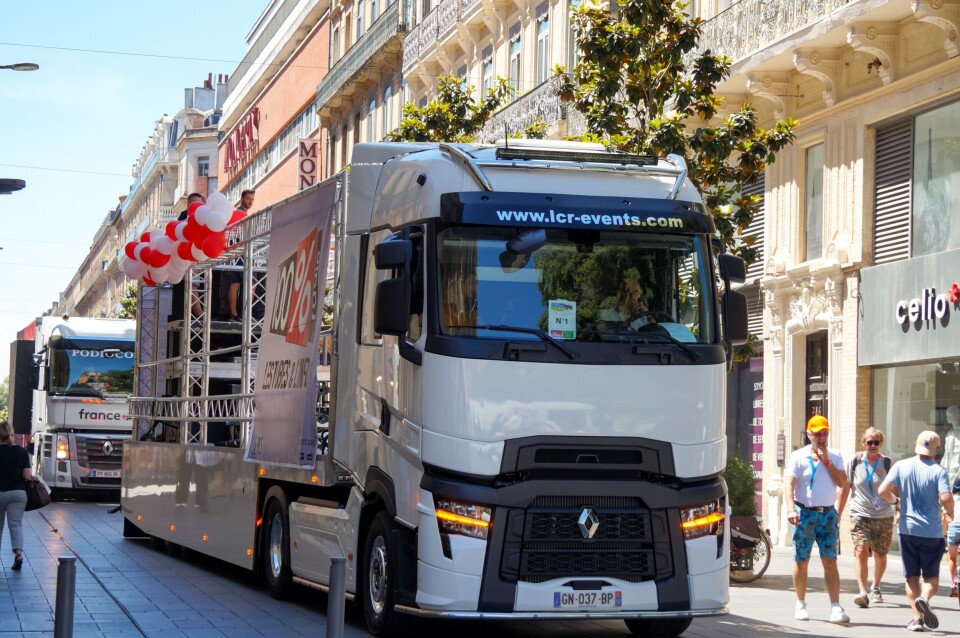-
Why storms in France have indirectly caused carbon monoxide poisoning
We cover tips and rules for detectors
-
Can you offer rentals in France when staying on visitor visa?
There are different thresholds for rentals before they are deemed as ‘professional income’
-
Must all properties in France have a ‘smart’ thermostat?
Modern thermostats can automatically set temperatures even when residents are away
Refrigerated French lorry trailers get new life as buildings
An enterprising duo have found a new use for end-of-life refrigerated lorry trailers

In an innovative business scheme, end-of-life refrigerated lorry trailers are being upcycled into accommodation for seasonal workers and pop-up bars for festivals.
The massive 40-tonne vehicles that roll along the main roads of France have a bureaucratic limit on their lifespan.
Every 12 years, the cooling boxes have to go through an extensive and expensive inspection for recertification, regardless of whether they are working well. The result is that most are sold cheaply and exported to Africa, where they continue to be used until they break down and are scrapped. Now, however, a Lyon firm called Regoods has partnered with one of the country’s main refrigerated trailer makers, Lamberet, to convert them into modular buildings.
Developing a unique system
Alexandre Dufrenne, who co-founded the company last year, said: “The wheels, refrigeration unit and chassis are taken by Lamberet, and we are left with the floor, insulated walls and ceilings.
“From this, we have developed a system, using timber cladding outside and inside, to give us light modular buildings, which are obviously very well insulated.”
Use-case
The firm is renting out the structures for events, such as music festivals, to make sure the concept works. It hopes to expand into housing, similar to mobile homes, in 2025. Early clients have included breweries, which have used the units as mobile bars. “We are lucky because the basic refrigerated trailer is strong – it has to be able to support the weight of around 30 tonnes of frozen food,” said Mr Dufrenne.
“They are also well-insulated with foam which, unfortunately, will never biodegrade. It can only be destroyed by burning, releasing toxic chemicals in the process. So instead of incinerating or burying it in landfill, reusing it as a building is ideal.”
The units are designed by his co-founder Mattia Paco Rizzi, an architect. They are delivered to the site on a lorry fitted with a crane, and installed on light foundations.
“It’s like a plug-and-play computer, said Mr Dufrenne. “Our customers are handed the keys and get a modular building with all facilities after less than a day’s work.”
Rentals cost around €1,000 a month. At the end of the lease, Regoods lifts the unit off the foundations and back on to a lorry to take it away.
The housing modules under development are aimed primarily at seasonal workers.This demographic generally requires accommodation in areas that are either hot in summer or cold in winter. The insulation, therefore, is a big advantage.
Pricing
Prices have not been confirmed but will probably be in the €50,000 range, and the company hopes all units will meet RT2020 building standards.
The development of Regoods has been helped by new laws requiring manufacturers to plan for when products reach the end of their life.
“For Lamberet, our partnership means they now have a much greener way of dealing with old trailers,” said Mr Dufrenne.
“We take the refrigerated part, while they take the chassis, refrigerator unit and wheels, all of which can be used to make new trailers.
“People talk about the importance of taking climate change seriously and working for the environment. We believe this is a practical way of doing so.”
Related Articles:
French former prison transformed into a hotel
New housing market blow, key box crackdown: 5 French property updates
Brittany second home ‘ban’, gutter dispute: 5 French property updates
























